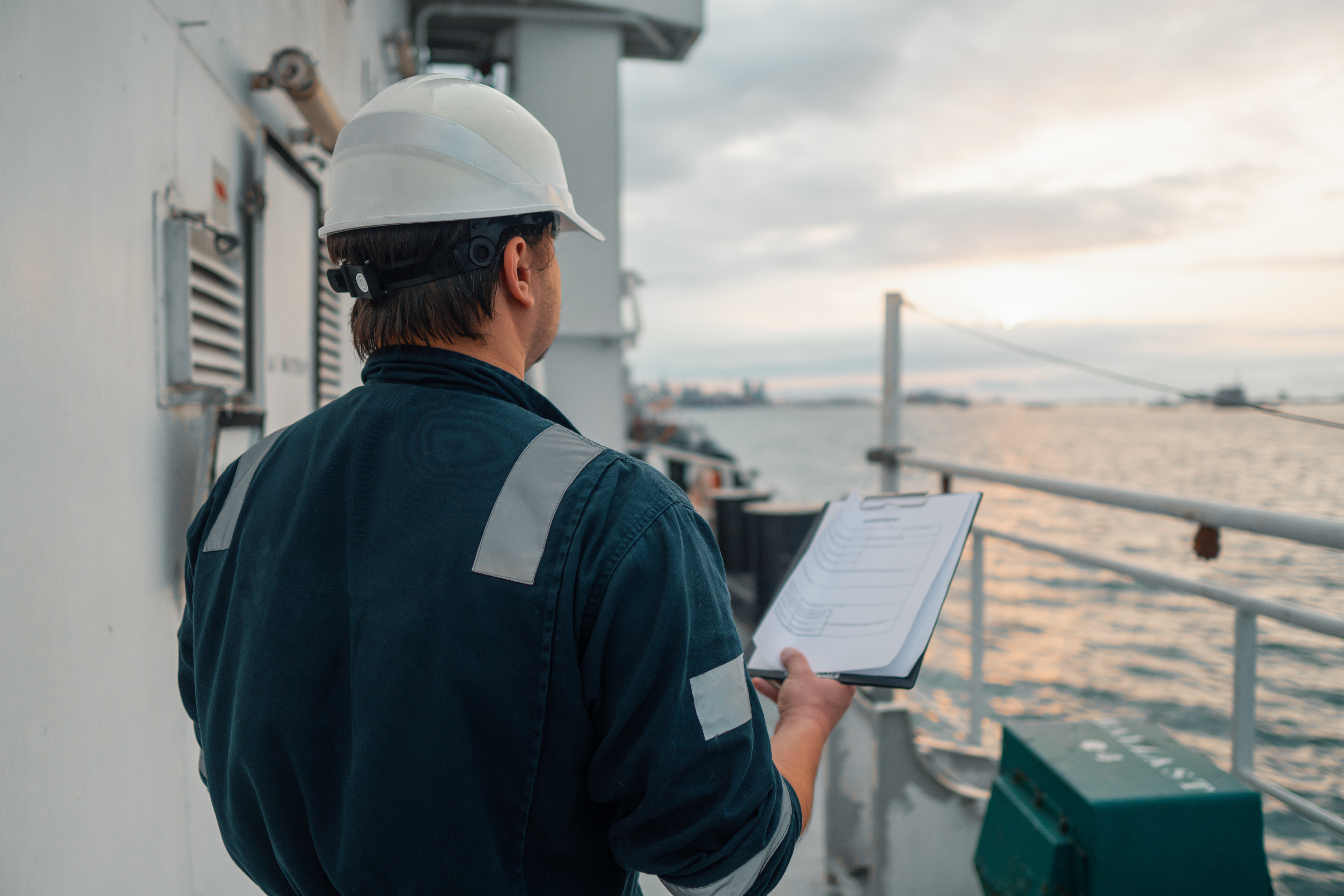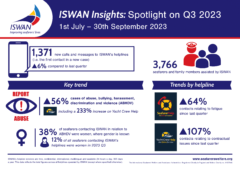The latest quarterly helpline data released by the International Seafarers’ Welfare and Assistance Network (ISWAN) reveals further increases in reports of abuse, bullying, harassment, discrimination and violence (ABHDV) from seafarers as a key trend across its helpline services.
In its ISWAN Insights: Spotlights on Q3 2023 infographic, ISWAN highlights a 56% increase in contacts from seafarers relating to ABHDV in comparison to the previous quarter. Following a steep quarter-on-quarter rise in reports of ABHDV in the first quarter of 2023, contacts fell back to more usual levels in quarter two. However, between July and September 2023, the numbers of seafarers who turned to ISWAN having experienced a form of abuse at sea once again increased substantially. In the first nine months of 2023, contacts to ISWAN’s helplines relating to ABHDV were 10% higher than in the first three quarters of 2022.
Between July and September 2023, just under 70% of seafarers who turned to ISWAN’s helplines for support in relation to ABHDV reported experiencing verbal abuse or bullying; in some cases, this included discrimination on the basis of the seafarer’s nationality or sexuality. In 16% of cases the seafarer was sexually assaulted or harassed, whilst 12% of cases involved physical assault. As ISWAN has previously reported, its helpline data indicates that women seafarers are disproportionately impacted by experiences of abuse at sea. Where the gender of the caller was known, in Q3 2023, 38% of seafarers with experience of ABHDV were women, compared with 12% of those who contacted ISWAN’s helplines during the quarter as a whole.
Experiencing a form of abuse is profoundly damaging to seafarers’ wellbeing: ABHDV is consistently one of the issues that is most closely associated with mental health difficulties amongst seafarers who contact ISWAN’s helplines. In the most recent quarter, seafarers who contacted ISWAN in relation to ABHDV also sought support to cope with sleep difficulties, issues with concentration, anxiety or stress. For many seafarers, the detrimental impacts on their wellbeing made it more difficult to carry out their work duties safely. In around 10% of cases, the seafarers’ experiences of ABHDV was further compounded by being asked to carry out excessive or unreasonable work, in some cases leading the seafarer to feel that their personal safety or the safety of the vessel was compromised.
For the majority of seafarers, their experiences of abuse took place within hierarchical power structures which further contributed to their sense of fear and powerlessness. In at least two thirds of cases, the perpetrator was a senior officer or yacht owner, which led many seafarers to feel unable to speak out about the abuse. Seafarers frequently emphasised the power that senior officers held over them and raised fears about losing their job, being refused a reference or not receiving their wages if they reported their experience of ABHDV. One seafarer commented that they feared seeking medical assistance as they believed that they would lose their job if they were put on sick leave. Others raised fears of accessing their company’s grievance procedure as they believed that it would be weighted in favour of their senior officer.






